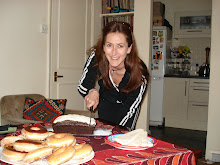
Recently spending 6 days in my island of beauty, Sarnia Cherie I thought about Victor Hugo and his connections with the island. Here is a bit of info about him. Did you know...................
Guernsey’s living history book begins with Neolithic Man and a burial mound called the Les Fouillages possibly the oldest manmade structure in Europe.
The islands formed part of Normandy from 933, forging a link between Britain and France that survives locally in Norman Law, surnames and Guernesaise, the local language. Guernsey sided with England in 1204 when King John lost Normandy to Phillippe Augustus of France. There was a castle built called Castle Cornet to repel a French invasion. In the summer the midday gun is fired. A cannon but no balls!
In light of he is French, lived in the island of my birth, that a Britains Got Talent contenstant chose a wonderful song from the musical created from his work written in the islands, here is a little info on this talented and interesting man……………………
In light of he is French, lived in the island of my birth, that a Britains Got Talent contenstant chose a wonderful song from the musical created from his work written in the islands, here is a little info on this talented and interesting man……………………
Victor Hugo left France in 1851 for an exile that would last 19 years. Following a short period of time in Jersey, Victor Hugo went to Guernsey and was instantly captivated by the island. Anyone who has visited will know why!
During his fifteen years on the island he wrote some of his most famous works. Here he completed many of his masterpieces, including La Légende des siècles, Les Misérables, William Shakespeare, Les Chansons des rues et des bois, Les Travailleurs de la mer and L’Homme qui rit.
Victor Hugo's home, for most of his exile in Guernsey, was Hauteville House, which remains today as it was left.
On 16 May 1856, thanks to the success of his Contemplations, Victor Hugo bought Hauteville House in Guernsey, a large white building with a garden overlooking the sea. An enthusiastic collector of secondhand furniture and bric-à-brac, he brought back a profusion of chests, sideboards, carpets, mirrors, crockery, figurines and other objects from his excursions around the island. He put his boundless imagination to work on the house, spending months overseeing a major conversion on a medieval pattern, which gave this unique building an inner force and mystery. Hugo lived in Hauteville House until 1870, when he returned to France after the fall of the Second Empire, but he stayed at Hauteville again for a year in 1872-73, for a week in 1875 and for four months in 1878.
Et voila! A little bit of French history linked to my birth home.




No comments:
Post a Comment